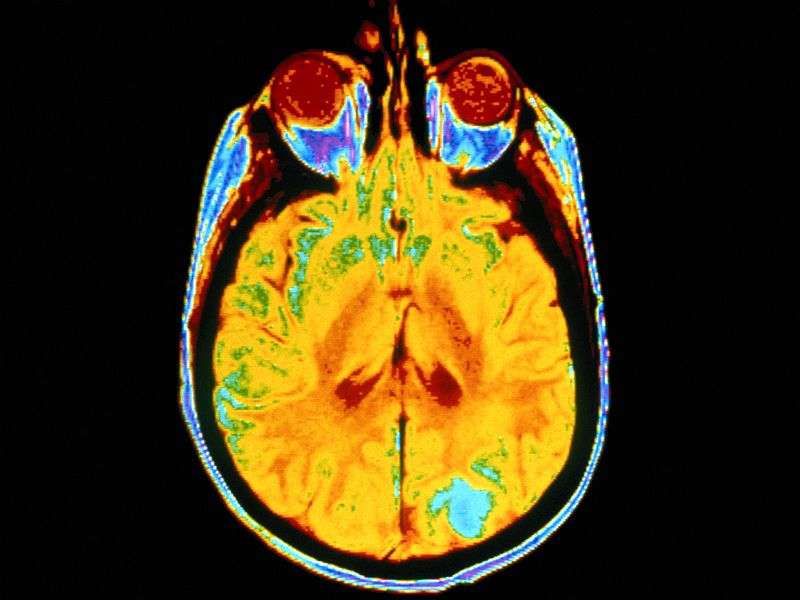White matter hyperintensities predate Alzheimer's onset

(HealthDay)—Autosomal dominant Alzheimer's disease is associated with increased white matter hyperintensities (WMH) on magnetic resonance imaging well before expected symptom onset, according to a study published online March 26 in the Annals of Neurology.
Seonjoo Lee, Ph.D., from Columbia University in New York City, and colleagues from the Dominantly Inherited Alzheimer Network evaluated data from 184 participants with a mutation that results in Alzheimer's disease and 115 first-degree relatives who were non-carrier controls. WMH differences between carriers and non-carriers were compared with respect to estimated years from expected symptom onset, calculated by subtracting the affected parent's symptom onset age from the participant's age.
The researchers found that mutation carriers had greater total WMH volumes, which appeared to increase approximately six years prior to expected symptom onset. The parietal and occipital lobes showed the most prominent effects, which exhibited divergent effects as early as 22 years prior to estimated onset.
"Autosomal dominant Alzheimer's disease is associated with increased WMH well before expected symptom onset," the authors write. "The findings suggest the possibility that WMH are a core feature of Alzheimer's disease, a potential therapeutic target, and a factor that should be integrated into pathogenic models of the disease."
Several authors disclosed financial ties to the pharmaceutical industry.
More information:
Abstract
Full Text (subscription or payment may be required)
Copyright © 2016 HealthDay. All rights reserved.



















